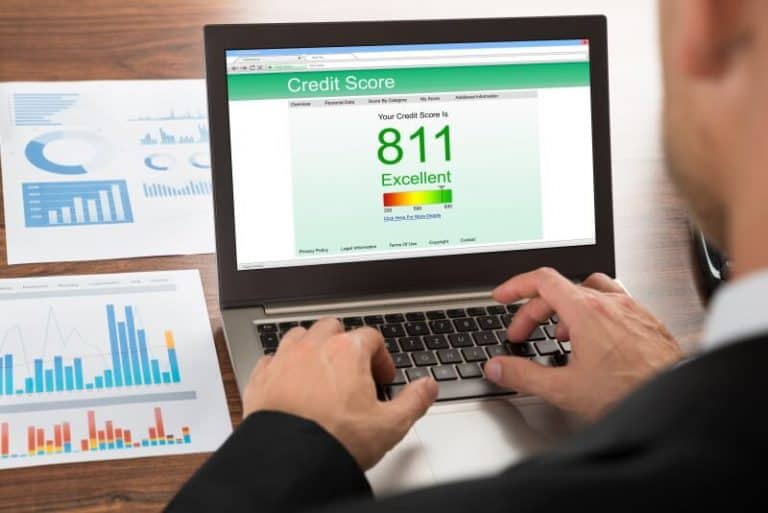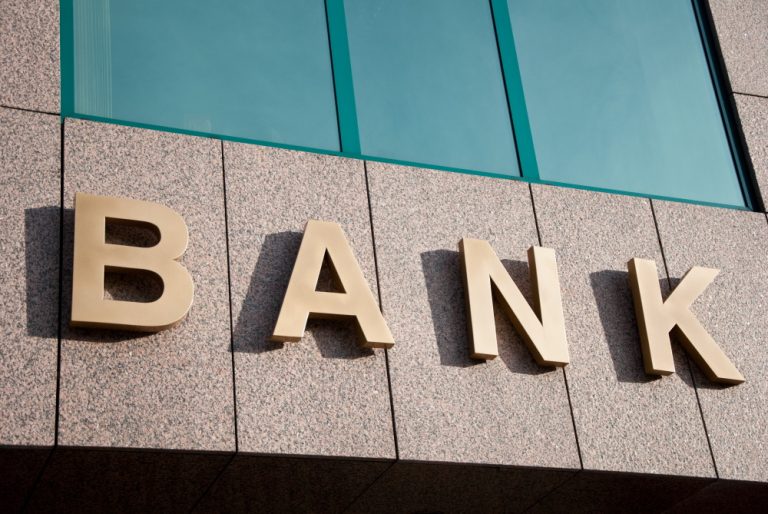The Top Student Loan Forgiveness Programs to Erase the Debt
This post may contain affiliate links. Please read how we make money for more information.
Students loans are a Catch-22.
In order to land a good-paying job, you have to first earn a college degree. And for many, the only way they have to pay for college is with student loans. Ironically, the increased earnings from their new jobs are then used to repay the loans they used to earn a college degree.
Do you see the problem? Is your head spinning?
Student loans are now a major crisis in the United States. As I’m writing this, the total combined amount of student loan debt is about $1.6 trillion. And there’s no end to the madness in sight. As each year passes, the cost of earning a college degree keeps going up, up, up.
I’ve written about ways to dramatically lower the cost of earning a college degree before. But what do you do if you’ve already earned a degree and you have a large student loan that needs to be repaid? What then?
Thankfully, there are some programs available where you can have a portion of your student loan forgiven or repaid that you may qualify for. You do have to meet certain requirements to qualify, however, which are usually very strict. It’s also important to point out that these programs are usually not for people with private loans. They usually only apply to those with certain kinds of student loans.

Here are several of the best student loan forgiveness programs that may help you pay off your debt:
Table of Contents
Student Loan Forgiveness for Nurses
Although nursing is a highly-lucrative career, it can still be expensive to earn the bachelor’s or master’s degree you need to work in the field. Thankfully, there are several student loan forgiveness programs available for those who work in this profession.
First, it’s important to point out that there are many student loan forgiveness programs available to nurses at the state level. You can search for your state and the programs available here.
Another option is the NURSE Corps Loan Repayment Program. This is a loan forgiveness program that is offered throughout the nation. In the program, you are required to work in a “critical shortage facility” in an under-served community. Depending on where you currently live, you may have to move to participate.
How much does it pay? Quite a bit. If you are accepted into the program, it will pay 60 percent of your unpaid nursing education debt over two years. It’s also possible to participate in the program a third year to have an additional 25 percent of the original balance paid.
That’s a combined 85 percent of your student loan debt wiped out in three years if you are willing to work in an area of the country where there is a critical shortage of nurses. Not a bad deal if you ask me.
Student Loan Forgiveness for Medical Professionals
It takes a lot of money to become a medical professional. Part of the reason why it’s so expensive is because many medical careers require significant training at the graduate level. And if you haven’t checked lately, most graduate school programs these days are very expensive. Thankfully, there are some student loan repayment programs available that you may qualify for.
If you are a medical professional with significant student loan debt, you might want to check out the National Health Service Corps Loan Repayment Program.
There are a number of medical professions that qualify in this program. You may qualify if you are a physician, physician assistant, nurse practitioner, certified nurse midwife, dentist, dental hygienist, health service psychologist, licensed clinical social worker, psychiatric nurse specialist, marriage and family therapist, or licensed professional counselor.
The NHSC Loan Repayment Program is very similar to the Nurse Corps program. If you are interested in serving for two years in an area of the country where there is a shortage of healthcare professionals in your field, you may qualify to have up to $50,000 in student loans repaid.
Another program for medical professionals is the National Institutes of Health Loan Repayment Program. This program is a little different from the ones previously mentioned. Instead of moving to an area where there is a shortage of medical professionals, you agree to become a medical researcher for a period of time. The program repays up to $35,000 of student loan debt annually.
Student Loan Forgiveness for Teachers
Being a teacher is a very personally rewarding career. You get to mold young minds and shape their futures. But no one has ever gone into teaching for the money or fame. In order to become a teacher, you do need to have a bachelor’s degree and teaching certification. And both cost a lot of money.
A program that is just for teachers is the Teacher Loan Forgiveness Program. In this program, you may qualify for up to $17,500 of student loan repayment. If you are accepted, you have to “teach full-time for five consecutive years in a low-income school or educational service agency” to qualify.
Student Loan Forgiveness for Lawyers

Although the legal field can be lucrative, it usually doesn’t start off that way. Unless you graduate at the top of your class from a top-tier school, you probably won’t end up with a six-figure starting salary. In fact, nearly half of all lawyers report starting salaries of $40,000-$65,000 per year.
Now, that’s not a bad starting salary for any career. The problem, however, is that it’s not uncommon for many lawyers to graduate with around $200,000 in student loan debt. When you have to make a large monthly payment on a student loan, it can take a major hit on your finances.
Thankfully, you do have options. First, if you are able to land a job with the Department of Justice, you may be able to qualify for up to $60,000 in student loan forgiveness if you stay with them for at least three years.
An additional option to consider is to check with your state bar association to see if they have any loan forgiveness programs. It’s also worth your time to check with your state to see if any additional assistance is available.
Student Loan Forgiveness for the Disabled
When people take out student loans, they generally expect to be able to work many years into the future to repay their debt.
But what happens if you become disabled?
Things happen. Sometimes people go through serious illnesses or they are involved in accidents that leave them unable to work. If something happens that causes you to become disabled and you have a federal loan, you may be able to qualify to have that loan discharged.
According to the student loan disability discharge website, in order to qualify, you must first prove that you are disabled. There are three different ways that this can be done:
1. The first method is for veterans who have become disabled due to a service-connected disability. In this situation, you can submit documentation from the United States Department of Veteran Affairs that states that you are disabled and cannot be employed due to an injury obtained while serving in the US armed forces.
2. The next method is for those who are receiving Social Security Income benefits (SSI) or Social Security Disability Insurance (SSDI). If you qualify for either option, you can submit a Social Security Administration notice of award for the benefits you are receiving.
3. The third method is to have a physician submit a letter stating that you are totally and permanently disabled. The letter must certify that because of your disability, you cannot engage in any form of work because it might result in death, it has lasted for a continuous period of five years or more, or it is expected to last for a continuous period of at least five years.
For more information, be sure to review the specific requirements on the student loan disability discharge website.
Student Loan Forgiveness Programs for Military Personnel

Several branches of the United States military offer programs to help you eliminate student loan debt. The programs are different for each branch, however, and certain requirements must be met to qualify.
If you are considering joining the military and you would like to find out the specifics of a branches loan forgiveness program, be sure to talk to a recruiter. This person will be able to tell you the specific requirements to qualify and how much of your student loan the program will repay.
With the military, it’s vitally important that you get everything in writing. Don’t just take the recruiter’s word for it. Make sure it’s written into your contract.
The Army Student Loan Repayment Program
If you are a new enlistee in the United States Army and they deem you to be “highly qualified,” you may be eligible for the Army Student Loan Repayment Program. This program was designed to attract highly skilled and educated recruits to join the Army who otherwise would have worked in the civilian sector.
If you are considering joining the Army and you have significant student loan debt, talk to a recruiter to see if the Army considers you “highly qualified.” If so, you will be required to participate in the program during the enlistment process. It’s also important to make sure participation in the program is specifically mentioned in writing in the enlistment contract.
If you qualify for the program, you may be eligible to have up to $65,000 in student loan debt repaid. To learn more about this opportunity, talk to an Army recruiter.
The Navy Student Loan Repayment Program
The Navy Student Loan Repayment Program is available to all enlisted Navy personnel. If you qualify, you may be able to have up to $65,000 in student loan debt repaid.
This program is only available to first-time enlistees who have not already completed a college degree. Also, in order to qualify, you must sign up for the program while you are signing your enlistment contract. You can’t join the Navy and then qualify for the program at a later date. And, finally, you must be current on your existing student loan (not in default).
To learn more about this opportunity, talk to a Navy recruiter.
The Air Force Student Loan Repayment Program
In the Air Force Student Loan Repayment Program, participants are only eligible to have up to $10,000 in student loan debt repaid. The program makes payments towards student loans totaling either $1,500 a year or 33.33 percent of outstanding student loans until the $10,000 limit is met.
To learn more about this opportunity, talk to an Air Force recruiter.
The National Guard Student Loan Repayment Program
If you like the idea of joining the military for the incredible benefits but don’t want to do it on a full-time basis, you might want to consider joining the National Guard. Those who join the National Guard with student loan debt may qualify to have up to $50,000 repaid. The program is only available for those who qualify for certain jobs with an enlistment of 6-8 years.
To learn more about this opportunity, talk to a National Guard recruiter.
The Army and Navy Reserves Forgiveness Program
The Reserves is another great way to serve your country on a part-time basis. If you are a member of either the Army or Navy Reserves, you may qualify to have up to 15 percent of your student loan balance paid down for each year of service.
To learn more about this opportunity, talk to either an Army or Navy Reserves recruiter.
Public Service Loan Forgiveness

Perhaps the most popular option on this list is the Public Service Loan Forgiveness program. It’s a program that many can qualify for, which is why it is so well-known. You may qualify for this program if you are a full-time employee of either a federal, state, or local government agency. 501(c)(3) non-profits also qualify as long as they are not religious organizations.
There are quite a few requirements in the program to qualify. First, the type of student loan you have matters. You must have a direct student loan in the form of either a Direct Subsidized, Direct Unsubsidized, Direct PLUS, or Direct Consolidation Loan. Direct student loans are made directly from the U.S. Department of Education.
Another requirement is the method you use to repay your loans. To qualify, you must be repaying your student loans in an income-driven repayment plan. This is a type of payment plan where your monthly loan payment is set at an amount that is considered affordable based on how much you earn and your family size. Repayment plans that qualify include Income-Contingent Repayment Plans, Income-Based Repayment Plans, Revised Pay As You Earn Repayment Plans, and Pay As You Earn Repayment Plans.
Another stringent requirement of the Public Service Loan Forgiveness program is that you must make 120 on-time loan payments. That’s 10 years worth of payments before loan forgiveness kicks in. The good news is that if you qualify for the program and you’ve made 10 years worth of payments, the remainder of your student loan debt is forgiven.
Income-Based Repayment Forgiveness
Income-Based Repayment Forgiveness (IBR) is the first of four types of income-driven repayment (IDR) plans.
While income-based repayment forgiveness programs do technically pay down the remainder of your student loan debt after a period of time, it may take you a long time to get there. These programs require you to pay anywhere from 10 to 15 percent of your discretionary income on your student loans for a period of 20 to 25 years, after which any remaining balance is forgiven.
What is discretionary income? This is the income that is left after you pay your taxes and other personal expenditures are taken into account such as food, shelter, and clothing.
For many, IBRs may not make any sense because of how long you have to pay on your loans before you qualify for forgiveness. 20 years is a long time, and many will be able to repay their debt in this period of time. Still, for those who owe a lot and don’t make a lot of money, this may be a viable option.
As with all of the other programs, there are stringent requirements that must be met before you can qualify. Only certain types of loans are eligible. An additional requirement is your payments under the IBR plan must be lower than under the regular 10-year plan.
Pay As You Earn Forgiveness
Similar to IBR, pay as you earn forgiveness (PAYE) reduces your monthly payments to just 10 percent of your discretionary income. If you have any balance left on your student loans after 20 years, the debt is forgiven.
The general idea behind the PAYE plan is that you will slowly start paying more as your career progresses and you earn more. Although PAYE is considered to be a better option than IBR, qualifying for PAYE is more difficult.
Revised Pay As You Earn Forgiveness
Similar to PAYE, Revised Pay As You Earn (REPAYE) is primarily different because it does not have any income requirements. It still takes anywhere from 20-25 years before you qualify for the forgiveness of the remainder of your student loan debt.
Income-Contingent Repayment Forgiveness
The fourth ICR plan is Income-Contingent Repayment Forgiveness (ICR). These plans do not have an income eligibility requirement. PAYE and IBR programs, in comparison, do require you to prove that you have a financial hardship to be approved.
Under ICR plans, your monthly loan payment is determined as being the lesser of either 20 percent of your discretionary income or how much the monthly payment would be on a 12-year payment plan when adjusted according to your income.
ICR plans are available for those with both subsidized and unsubsidized Direct Loans, Direct Consolidation Loans, and Direct PLUS loans. Payments must be made for 25 years before the remainder is forgiven.
Watch Out for Student Loan Forgiveness Program Scams

Sadly, there are many scammers who prey on people who are drowning in student loan debt. As bad as many people’s financial situations already are, the last thing they need is for someone to try to rip them off when they are desperate for help. Thankfully, there some things you can be on the lookout for to help prevent you from becoming a victim.
This is not an exhaustive list, of course. Scammers are often very clever, and they do occasionally come up with new ways to rip people off. A few things to be on the lookout for as you explore ways to have your student loans forgiven include:
Being Charged to Fill Out Government Forms
Be suspicious of any company or organization that charges a fee to fill out government forms on your behalf. You can fill out and submit the Free Application for Federal Student Aid (FAFSA) yourself for free.
A Company Says It Can Have Your Student Loan Debt Erased for a Fee
You should never have to pay a fee to participate in a legitimate student loan forgiveness program. These scams are designed for one purpose only – to separate you from your money.
A Company Says It Can Have Your Debt Erased In Exchange for Your Information
In this scam, the information you turn over is used to commit identity theft. You always want to be very, very careful about giving your information to any company or organization.
A Company Promises Immediate Loan Forgiveness
No company can immediately erase your student loans. Legitimate programs have strict requirements and often require years of commitment to have the remainder of the loans erased.
A Company Claims It Can Help You Negotiate Better Terms for Your federal Loan
This is a scam for the simple reason that federal loans cannot be negotiated. Private loans, however, are different. It may be possible to negotiate better rates or terms if you have a private loan. Still, this is something you can do yourself. You don’t need to pay a company to negotiate on your behalf.
This list represents just a few of the many potential scams you may encounter involving student loans. Sadly, there are many ways that scammers try to steal from people. Always be cautious when someone makes an offer that sounds too good to be true.
Ditching the Debt
Are student loan forgiveness programs legitimate?
Yes, they are definitely legitimate, but most of them do have very strict requirements you must meet to qualify. You have to be willing to jump through their hoops.
Thankfully, you do have options.
If you qualify for one of the many student loan forgiveness programs and you are willing to meet their strict requirements, you may be able to have some of your student loan debt repaid. Whether one of these programs is a good option for you depends on your unique personal situation, the type of loan you have, and whether you qualify for one of the programs.
Earning a college degree is definitely a worthy pursuit. It can potentially open many doors in your life. If you’ve already racked up a lot of student loan debt, it may be worth your time to see if one of these student loan discharge programs is a good option for you.







